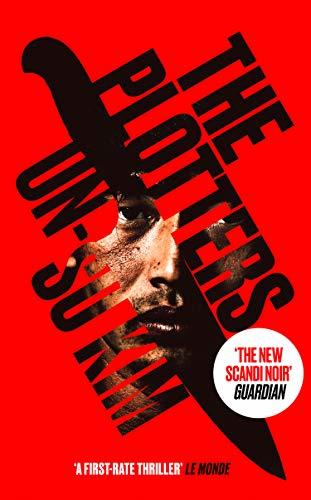What do you think?
Rate this book


‘Kill Bill meets Murakami’ D. B. John, author of Star of the North
‘A work of literary genius’ Karen Dionne, internationally bestselling author of Home
‘I loved it!’ M. W. Craven, author of The Puppet Show
‘You’ll be laughing out loud every five minutes’ You-jeong Jeong, author of The Good Son
‘A mash-up of Tarantino and Camus set in contemporary Seoul’ Louisa Luna, author of Two Girls Down
‘An incredible cast of characters’ Le monde
‘Smart but lightning fast’ Brian Evenson, author of Last Days
Plotters are just pawns like us. A request comes in and they draw up the plans. There’s someone above them who tells them what to do. And above that person is another plotter telling them what to do. You think that if you go up there with a knife and stab the person at the very top, that’ll fix everything. But no-one’s there. It’s just an empty chair.
Reseng was raised by cantankerous Old Raccoon in the Library of Dogs. To anyone asking, it’s just an ordinary library. To anyone in the know, it’s a hub for Seoul’s organised crime, and a place where contract killings are plotted and planned. So it’s no surprise that Reseng has grown up to become one of the best hitmen in Seoul. He takes orders from the plotters, carries out his grim duties, and comforts himself afterwards with copious quantities of beer and his two cats, Desk and Lampshade.
But after he takes pity on a target and lets her die how she chooses, he finds his every move is being watched. Is he finally about to fall victim to his own game? And why does that new female librarian at the library act so strangely? Is he looking for his enemies in all the wrong places? Could he be at the centre of a plot bigger than anything he’s ever known?
306 pages, Kindle Edition
First published January 1, 2010
As if it wasn’t ironic enough that the country’s top assassination provider was brazenly running his business in a building owned by an international insurance company; the same assassination provider was also simultaneously managing a bodyguard firm and a security firm. But just as a vaccine company facing bankruptcy will ultimately survive not by making the world's greatest vaccine but, rather, the world's worst virus, so, too, did bodyguard and security firms need the world's most evil terrorists in order to prosper, not the greatest security experts. That was capitalism, Hanja understood how the world could curl around and bite its own tail like the uroboros serpent. And he knew how to translate that into business and extract the maximum revenue. There was no better business model than owning both the virus and the vaccine. With one hand you parceled out fear and instability, and with the other you guaranteed safety and peace. A business like that would never go under.
–and–
“People think villains like me are going to hell. But that’s not true. Villains are already in hell. Living every moment in darkness without so much as a single ray of light in your heart, that’s hell. Shivering in terror, wondering when you’ll become a target when the assassins will appear. True hell is living in a constant state of fear without even knowing that you’re in hell.”
I’m not sure if I’ve made this sound as appealing as it deserves. I found it compulsively readable and, despite the apparent bleakness of the subject matter, full of humour and emotional warmth. I highly recommend it as something different from the usual run of things – well written, well plotted and ultimately strangely satisfying.
Plotters are just pawns like us. A request comes in, and they draw up the plans. There's always someone above them who tells them what to do. And above that person is another plotter telling them what to do. You know what's there if you keep going all the way to the top? Nothing. Just an empty chair.
What sped up the assassination industry was the new regime of democratically elected civilian administrations that sought the trappings of morality. Maybe they thought that by stamping their foreheads with the words It's okay, we're not the military, they could fool the people. But power is all the same deep down, no matter what it looks like.
To the plotters, mercenaries and assassins were like disposable batteries. After all, what use would they have for old assassins? An old assassin was like an annoying blister bursting with incriminating information and evidence. The more you thought about it, the more sense it made. Why would anyone hold on to a used-up battery?
You can't shit your pants just because the toilet is dirty.This book seems to be an attempt to unpack the philosphy contained in that observation, made by the main character on p. 65 of my hardback edition. Written by a highly-awarded Korean author and translated with flair, this is a very easy book to read.